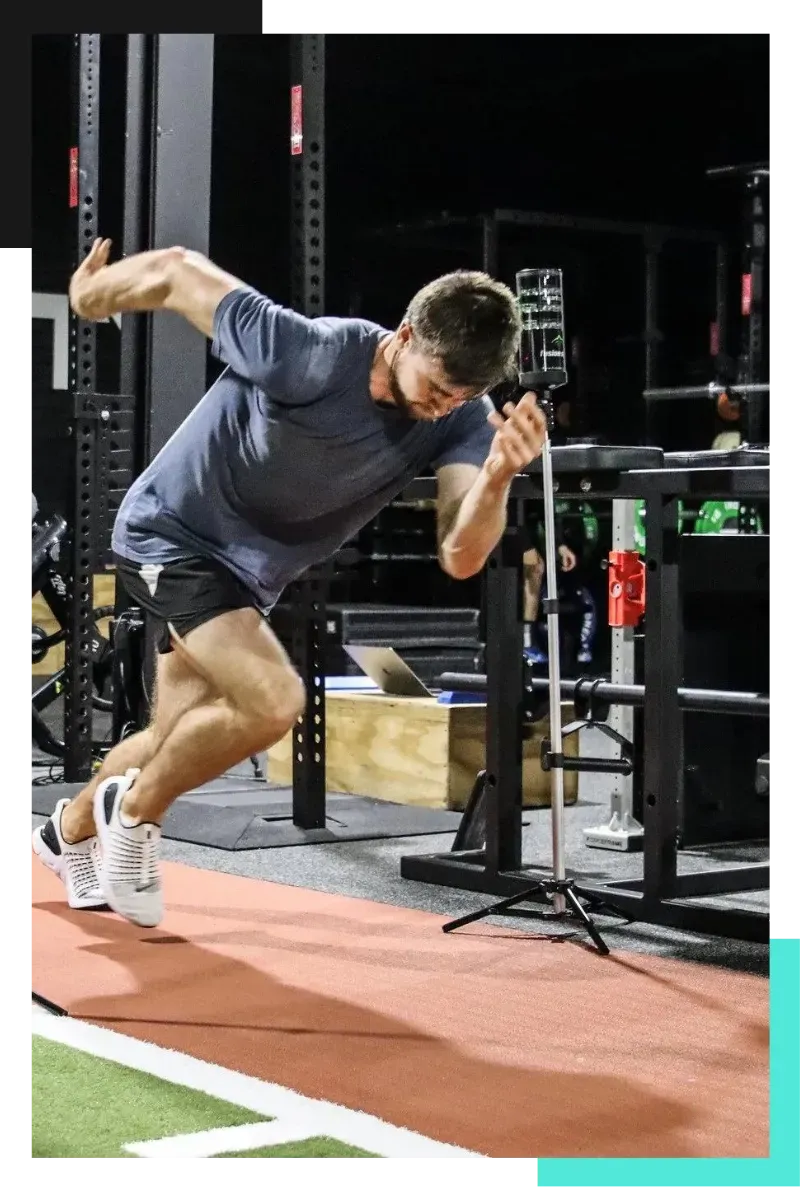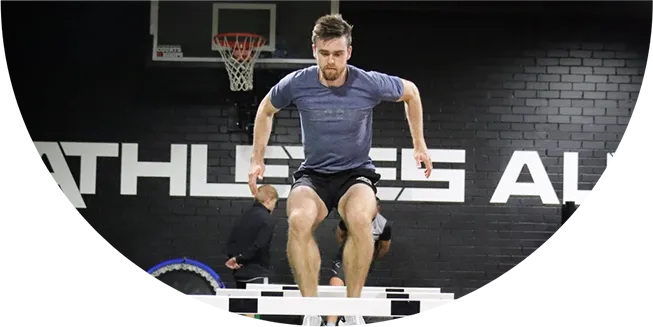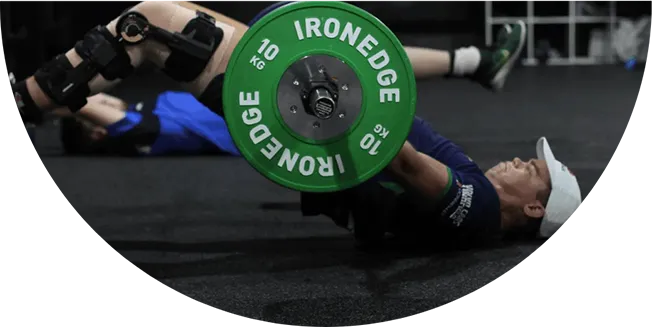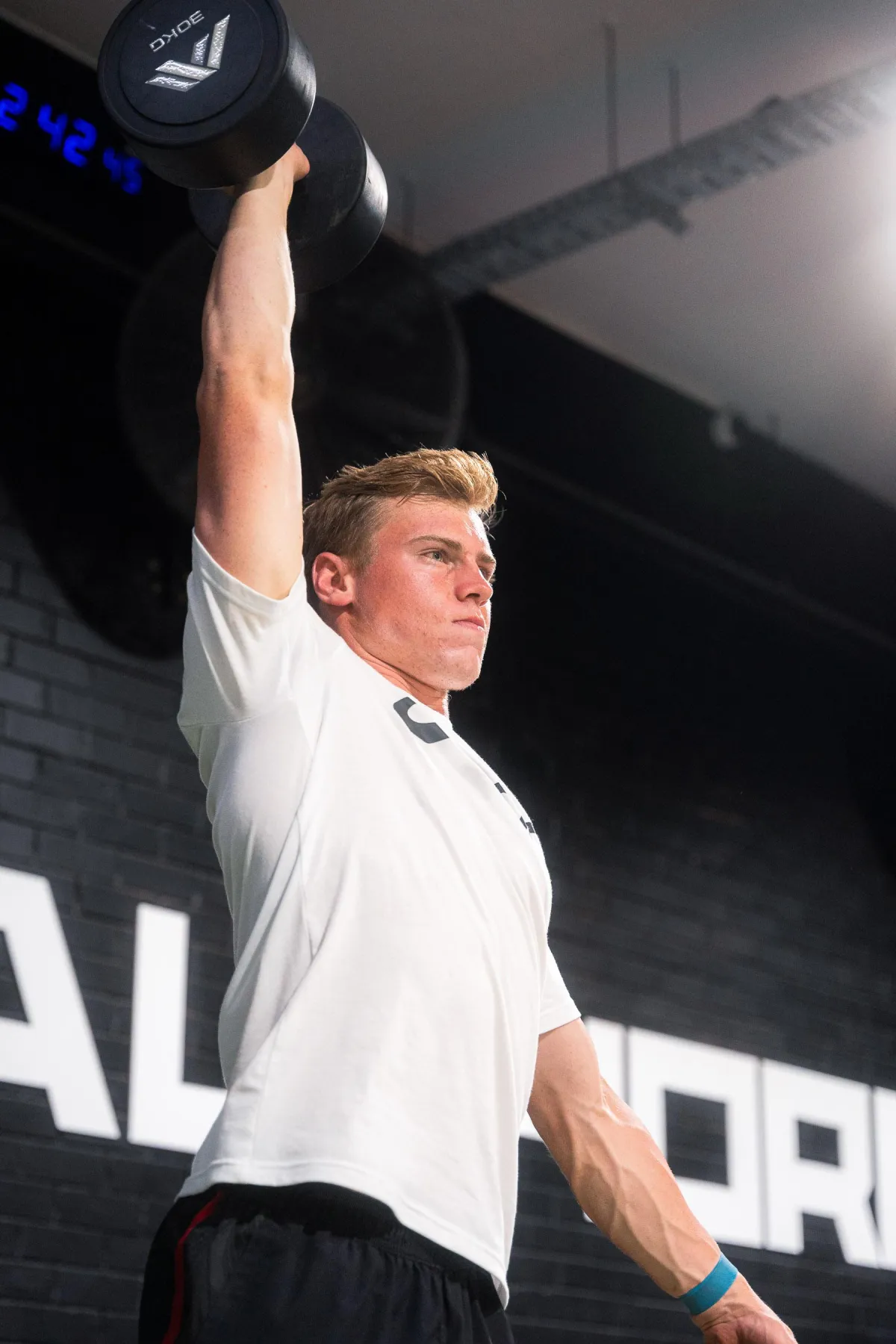Speed System Course
WANT YOUR ATHLETES
RUNNING FASTER?
Get Free Access To The Entire Athletes Authority Speed System Responsible For Helping Us Develop The Gift Of Speed.
Our Team Has Been Trusted By:















In This 90-Minute Video Course (That’s Entirely Free),
You’ll Discover:
How To Develop Your Coaches Eye So You Can Quickly Pick-Up On Technical Running Faults.
The Simple Solution We Use To Implement Technical Fixes That Are Easy For Your Athletes To Learn.
How To Transfer ‘Drilling’ Into Real-World Speed Improvements.
The Best Way To Measure & Track Speed Improvements To Get Athlete Buy-In.
our services
WHEN YOUR ATHLETICISM MATTERS TO YOU, OUR PROGRAMS HAVE YOU COVERED.

“For Athletes Who Are Hungry For A Competitive Edge”
Athlete Development Program
Improve Athleticism With A Strength & Conditioning Program That Guarantees Results (Or Your Money Back)

“For Athletes Who Want To Rehab Their Injury, For Good.”
Sports
Physio
Program
Return To Sport With Confidence And Get Back To Doing What You Love, Faster.

"For athletes seeking enhanced speed and agility in team sports."
Speed & Agility Training
Develop The Gift Of Speed And Get Noticed For Your Game-Changing Abilities On The Field Of Play

“For Sporting Parents Who Want To Set Up Their Kids For Success”
Emerging Athlete Program
Helping Sporting Parents Foster Their Kid's Potential & Set Them Up For Success.
Take a virtual tour of Our
strength & conditioning gym
WE BUILT A TRAINING & REHAB FACILITY THAT COULD BE AN ATHLETES’ HOME AWAY FROM HOME. WATCH THE VIDEO TO SEE FOR YOURSELF.
SYDNEY
melbourne
OUR PHILOSOPHY
While An Athlete's Goals May Change, The Pursuit Of Performance Never Ends.

Athletes strive for two timeless objectives: raising their standards and winning. They constantly aim to surpass their previous achievements and believe in their ability to reach greater heights. Winning is an integral part of their DNA; they are driven by the desire to succeed. To attain such success, they must create a personalized GamePlan.
Our training system is built on the philosophy of "Minimizing the Downside (Injury) While Pursuing the Upside (Performance)." It empowers athletes at all stages to enhance their performance. Whether you're an amateur or an Olympian, our comprehensive approach combines in-person coaching with virtual and mobile support. Develop a resilient body and mindset for success with our expert guidance. Achieve more with our performance and rehabilitation programs.
350+
ATHLETES WHO TURNED PRO
450+
PRO ATHLETES COACHED
500+
5-STAR GOOGLE REVIEWS
IN THE NEWS

How Strength Training Enhances Performance and Prevents Injury in Athletes
Athletes are constantly seeking ways to improve performance, reduce the risk of injury, and gain a competitive edge. Strength training is one of the most effective and essential components of any athlete’s training program. Not only does it help enhance athletic performance, but it also plays a crucial role in injury prevention by improving the body’s overall resilience and stability.
What is Strength Training and Why is It Important for Athletes?
Strength training involves exercises designed to increase muscle strength, power, and endurance through resistance. These exercises include weightlifting, bodyweight exercises, and resistance bands, all of which target different muscle groups to build strength.
For athletes, strength training is an integral part of any sport-specific training plan. It allows athletes to build the strength necessary for explosive power, better agility, and improved endurance—key factors that directly contribute to improved performance.
1. Enhancing Performance Through Strength Training
When you think of performance, it's easy to focus on skills and tactics specific to your sport. However, strength is the foundation for almost every athletic movement. Whether you're sprinting, jumping, swimming, or throwing, strength training enhances the power and coordination required for those movements.
Benefits of Strength Training on Performance:
Increased Power and Explosiveness: Strength training improves your ability to generate power. This is especially important for sports that require explosive movements, like sprinting or jumping.
Improved Speed and Agility: Stronger muscles allow for more efficient movement patterns, increasing speed and agility on the field or court.
Better Endurance: By building muscle strength, athletes can delay fatigue, maintain high-intensity efforts longer, and perform at their peak throughout the game or competition.
Greater Stability and Balance: Strengthening stabilizing muscles improves coordination, which is crucial for preventing falls or missteps during physical activities.
2. Injury Prevention: How Strength Training Protects Your Body
Injury prevention is one of the most significant benefits of strength training, especially for athletes who engage in high-impact or intense physical activities. When muscles are weak, tendons, ligaments, and bones can suffer undue stress, increasing the risk of injury. Strength training helps build the muscles around vulnerable joints, improving joint stability and reducing the risk of strain or sprain.
How Strength Training Prevents Injury:
Improved Muscle Imbalance: Muscular imbalances can lead to injury. Strength training helps to balance the development of opposing muscle groups (e.g., quads and hamstrings) to maintain overall stability.
Better Joint Support: Stronger muscles help absorb the forces placed on joints during physical activity. This reduces wear and tear and the likelihood of conditions like tendonitis or ligament injuries.
Stronger Ligaments and Tendons: Strength training doesn't just build muscles; it also helps increase the density and strength of ligaments and tendons, making them less prone to injury.
Better Posture and Movement Patterns: Strengthening core muscles improves posture and helps athletes maintain proper form, reducing the likelihood of poor mechanics that could lead to overuse injuries.
3. The Role of Strength Training in Rehabilitation
Even if an athlete is recovering from an injury, strength training can play a critical role in rehabilitation. After an injury, muscles tend to weaken, and the risk of further injury increases. Gradual, controlled strength training helps to rebuild the muscle and restore its function.
How Strength Training Helps in Rehabilitation:
Restores Strength and Mobility: Strength training regains muscle mass and mobility that may have been lost during the recovery process.
Reduces the Risk of Re-injury: By strengthening the muscles and stabilizing joints, athletes can return to their sport with more protection against future injuries.
Enhances Flexibility: As strength improves, flexibility also tends to increase, reducing muscle tightness and improving range of motion.
4. Creating a Strength Training Program for Your Sport
To maximize the benefits of strength training, it’s important to follow a program tailored to your sport and specific needs. A well-rounded strength training program focuses on the major muscle groups while considering the physical demands of the sport you compete in.
Components of a Strength Training Program:
Sport-Specific Movements: Target exercises that mimic the movements of your sport (e.g., for basketball, focus on explosive movements; for swimming, emphasize upper body and core strength).
Progressive Overload: Gradually increase the resistance or intensity over time to continually challenge the muscles and improve strength.
Recovery: Allow adequate recovery time between sessions to ensure muscles can repair and grow.
Conclusion: Build Strength for Performance and Injury Prevention
Strength training is a cornerstone of athletic performance and injury prevention. By focusing on building strength, athletes can enhance their power, speed, endurance, and stability, while also reducing the risk of injury. No matter your sport, strength training is an essential part of your training regimen.

LISTEN TO THE PODCAST
Athletes authority on air
The Podcast that interviews the leaders in the Strength & Conditioning Community.
MELBOURNE LOCATION
SYDNEY LOCATION
© 2023, Athletes Authority | All Rights Reserved
Website & Marketing Powered By Gymini
































